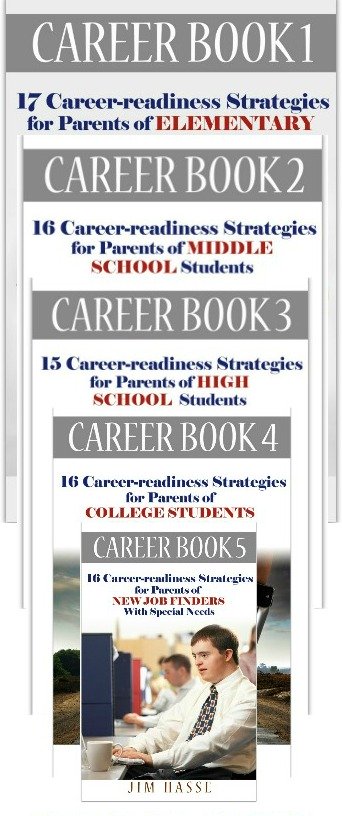Importance of
Motivation: Career Builder
for Job Seekers with Cerebral Palsy
By Jim Hasse, ABC, GCDF, Disability Employment Expert
_________________________________________________________
The importance of motivation for your just-out-of-school son or daughter with cerebral palsy (CP) can not easily be over-stated when it comes to getting that first “real” job.
I believe a job seeker in that situation must be highly motivated to work around accessibility barriers (particularly those which involve transportation and adaptive technology issues) that may be standing in the way of getting hired. In fact, you can help your mentee turn such barriers into career builders by showing what it’s like to be nimble in resolving such issues.
A nimble and solution-oriented job seeker who is willing to take personal responsibility for tackling tough on-the-job accessibility issues shows employers that he or she:
- Prefers to be as independent as possible in gaining workable
accommodations.
- Realizes it's a personal responsibility to become
technologically savvy.
- Knows how to manage problems in a variety of settings at
work and at home.
- Is willing to set priorities and work toward long-term goals.
That's why I stress the importance of motivation in an individual's career development.
What “marks of maturity”
have you noticed
in your youngster?
Join
PACER’s Facebook
discussion.
By gaining experience in volunteer and
part-time jobs while in school, your youngster has an opportunity to translate the above attitudes and attributes into concrete business situations --
accomplishments that can be highlighted on resumes. That’s a mark of maturity.
Five anecdotes: Marks of maturity
Here are some comments that I have collected over the last few years from individuals with a disability who are today working in the mainstream job market. I believe they have succeeded in working around disability employment barriers largely because they have demonstrated their maturity in tackling the on-the-job accessibility issues they each face.
On a personal level, they know the importance of motivation.
Let's hear the advice they have for your soon-to-be employed young son or
daughter.
David:
"People are hired because they have shown that they can get the job done.
If we can't do that, for any reason, then we can't be hired and retained as
valuable business assets…
"…With my employer, I was simply moved to a project that features
accessible technologies that work with JAWS…
"I am considering myself very lucky that I have an employer who sees the
value I add to the company and does not simply throw me away because of my
technology inaccessibility problems…
"...I am very rarely late to work and, on the few occasions when it has
happened, it hasn't been repeated in a very long time. I believe the reasons
for the good service I receive on paratransit have a lot to do with my
proactive advocacy efforts. I simply refuse to accept rudeness and
unprofessionalism, and I always insist on prompt resolution of all issues,
escalating through the chain of command until proper action is ultimately
taken.
"…When you take the initiative and act for yourself, you show the world
that you recognize the importance of motivation and have what it takes to effectively perform the duties of that job you
seek!"
Nancy:
"…I have had several jobs and have done well in most. In some cases, I got
along with minimal accommodation, but more recently I did receive the basic
tools I needed. Still, I have preferred what I was able to choose for myself...
The impact on my family's credit cards notwithstanding, I feel the independence
has been well worth it…
"What I have done about needing transportation for my business is simply
gone entirely online. I train via the phone. All meetings are via chat or
messenger. I have a knack for making this not look like a disadvantage but
rather a distinction…"
Kathy:
"…We all know that we have to use whatever is at our disposal to be viable
in today's job market. Knowing as much technology as you can is a real
plus."
Jerry:
"... I am living in an apartment with a former neighbor who is also
visually challenged. This is part of an agency which works with people who have
disabilities so that they can live independently. For me and for my family this
was a very positive accomplishment…"
John:
"…I'm always amused when I look back at the situations I resolved at work
--- issues my co-workers without disabilities didn't have to think about…
"I do know that getting a job and developing my career was the key to
everything else I wanted to accomplish…"
Some adjectives come to mind as I review these snippets: realistic, savvy,
grateful, proactive, assertive, creative, independent, and accomplished.
Aren't those some of the personal attributes you want your
son or daughter to show prospective employers? They are the mark of maturity --
a quality hiring managers seek in the job candidates they interview. They also remind us about the importance of motivation.

Steps in becoming adaptive technology independent
Your young man or woman can demonstrate maturity during job interviews by being savvy (and
helpful) about the on-the-job accommodations he or she needs.
To do so, I recommend following these three steps toward becoming “adaptive technology”
independent:
- Become familiar and stay up-to-date with the
resources on the Job Accommodations Network (JAN) that apply
to a specific situation.
- Form a rotating, informal team of “experts” from
your local area who can keep your young man or woman up-to-date on a routine
basis about which cutting-edge technologies can work best to meet personal
needs at a cost that is not prohibitive.
- Work with your state vocational rehabilitation office to see what funding is available for obtaining needed adaptive technology.
Can you picture your son or daughter managing those resources and that informal adaptive technology team? That experience itself is worthy to note on a resume -- and it all stems from recognizing the importance of motivation and the value it has in today’s job market.
What “marks of maturity”
have you noticed
in your youngster?
Join
PACER’s Facebook
discussion.
Return from Importance of Motivation to Job Finder
Go to Cerebral Palsy Career Builders
This is Creative Commons content. You can freely and legally use, share and repurpose it for non-commercial purposes only, provided you attach this sentence and the following attribution to it (including the two links):
Originally written and illustrated by Jim Hasse, ABC, GCDF, owner of Hasse Communication Counseling, LLC, who, as a person with cerebral palsy, served for 10 years as a vice president in a Fortune 500 company during his 29-year career in corporate communication. He’s an Accredited Business Communicator, certified as a Global Career Development Facilitator and author of 14 Amazon books about disability awareness and disability employment issues.





